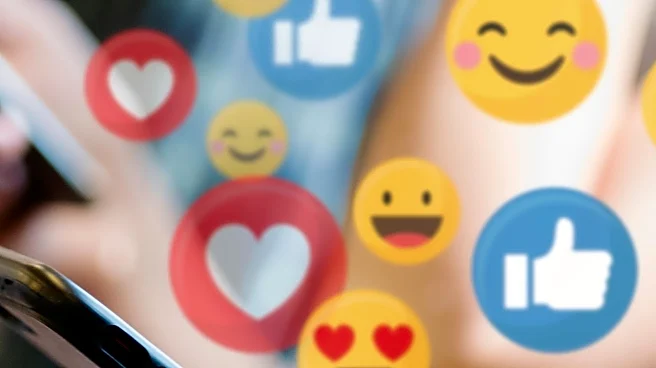What's Happening?
A recent study conducted in the Netherlands has found only a small correlation between social media use and poorer mental health, suggesting that genetic factors may play a significant role. Researchers analyzed data from thousands of twins and discovered
that the associations between social media use and mental health were often influenced by shared genetic factors. The study challenges the narrative that social media is universally harmful to psychological well-being, indicating that individual genetic differences may shape the effects of social media use.
Why It's Important?
This study is important as it adds nuance to the ongoing debate about the impact of social media on mental health. By highlighting the role of genetics, it suggests that broad actions to curtail social media use may not be effective for everyone. The findings could influence public policy and mental health strategies, encouraging a more personalized approach to addressing mental health challenges. It also underscores the need for further research to understand the complex interactions between social media use, genetics, and mental health.
Beyond the Headlines
The study's findings could have implications for how mental health professionals approach treatment and prevention strategies. By recognizing the role of genetics, there may be opportunities to develop more targeted interventions that consider individual differences. Additionally, the study challenges the simplistic view of social media as inherently harmful, prompting a reevaluation of how digital platforms are integrated into daily life and mental health care.















